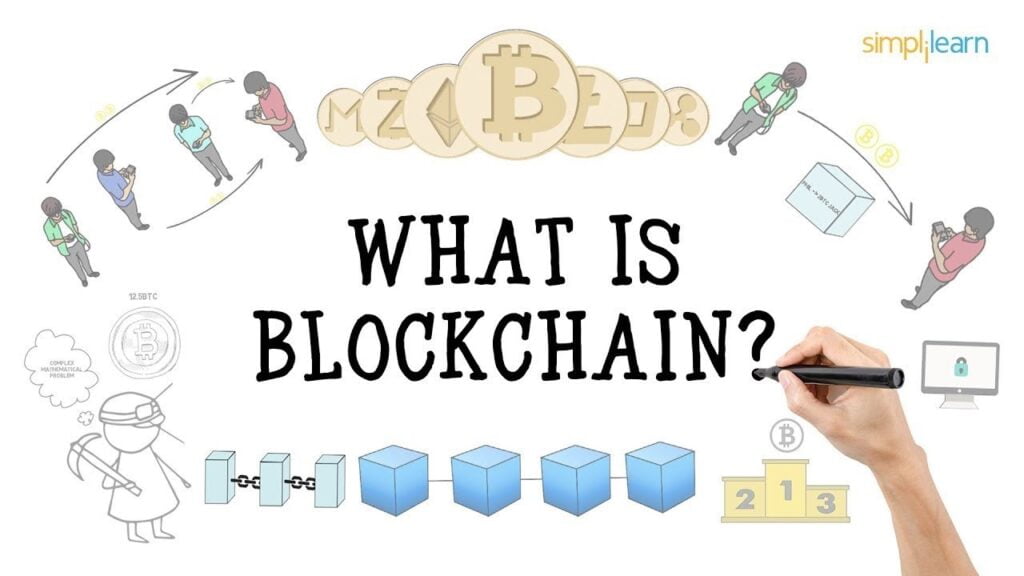What is Blockchain technology?
An electronic database of all cryptocurrency transactions is known as a Blockchain. It expands when fresh blocks of recordings add as “finished” chunks. Each block includes transaction information, a timeframe, and a digital copy of the one before. Bitcoin nodes use blockchain technology to distinguish between authentic Bitcoin exchanges and efforts to spend previously spent currencies again.
How does Blockchain work?
Blockchain provides a method for safely and effectively generating a contaminated record of sensitive activities. All sorts of information, including monetary operations and medical records, might be verified and recorded using this. This type of data storage makes it considerably harder for anyone to edit or remove already-existing records. Each entry depends on the blocks that come preceding and following. Thus changing one block would require recalibrating and updating every other block, which would be quite computationally expensive. Because of this, keeping data on a Blockchain is very secure.
Top 10 advantages of Blockchain technology

The following are some advantages of Blockchain:
-
- Security: Because of its divisional model and use of cryptographic hashing, Blockchain technology is very secure.
- Impervious to tampering: Information entered onto the Blockchain cannot be changed or removed once verified.
- Efficiency: Blockchain can simplify procedures and lower expenses by doing away with intermediaries.
- Transparency: All information recorded on the Blockchain is open and viewable.
- Decentralised: Blockchain is fragmented, which means it is not governed by a single entity from a central location.
- Unchangeable: As was already established, information added to the Blockchain cannot be changed or removed, making it unchangeable.
- Quick: Because Blockchain is distributed, it enables transactions to happen very quickly.
- Scalable: It can handle millions of customers and transactions because it is highly scalable.
- Versatile: This technology can be utilised to develop various applications outside cryptocurrencies.
- Environmentally friendly: It can aid in lowering environmental waste because it doesn’t require physical paper or paper.
The potential of Blockchain technology
Blockchain technology can potentially transform several different industries, like healthcare and education. Decentralisation, or the ability to conduct transactions without the involvement of a third party like a bank or the government, is its most obvious allure. This increases the efficiency of transactions while simultaneously lowering the risk of fraud. Additionally, blockchain is very secure because of its distributed network, which keeps track of and verifies all network transactions.
Blockchain can upend several sectors by rendering them more secure and efficient. There is little doubt that Blockchain can transform the game, but only time will tell if it will live up to its potential.
What are the applications of Blockchain?
The applications of blockchain technology are numerous and extensive. These applications are applicable to the financial sector to provide a more effective and secure transaction processing system. Blockchain technology can be used in the healthcare sector to store patient information and health records safely. Blockchain can be used in the supply chain management sector to track the movement of items and guarantee that they are not interfered with.
Blockchain technology can be used in the education sector to validate the validity of academic qualifications. These are just a few instances of applying blockchain to address issues in the real world. Blockchain technology has countless potential uses, and in the next years, it is certain to have a significant impact on several different businesses.
What are the challenges of Blockchain technology?
Blockchain technology has a lot of potential benefits, but it also has a lot of problems that require fixing. Scalability, or how blockchain can handle a huge customer base and transactions, is one of the main issues. Another issue is administration; due to the decentralization of blockchain, who will decide how it will run in the future? These are just a list of the issues that requires solution before blockchain can realise its full potential.
What is the future of Blockchain technology?
Uncertainty surrounds blockchain technology’s future. While some industry professionals are optimistic about blockchain’s potential to transform various sectors, others are more pessimistic. There is little doubt that blockchain technology can transform the world as we know it, but only time will tell how it will advance.
Conclusion
Unquestionably, blockchain technology has potential. Improving their security and efficiency has the potential to transform a variety of sectors completely. Before blockchain realises its full potential, several obstacles still need a solution.
